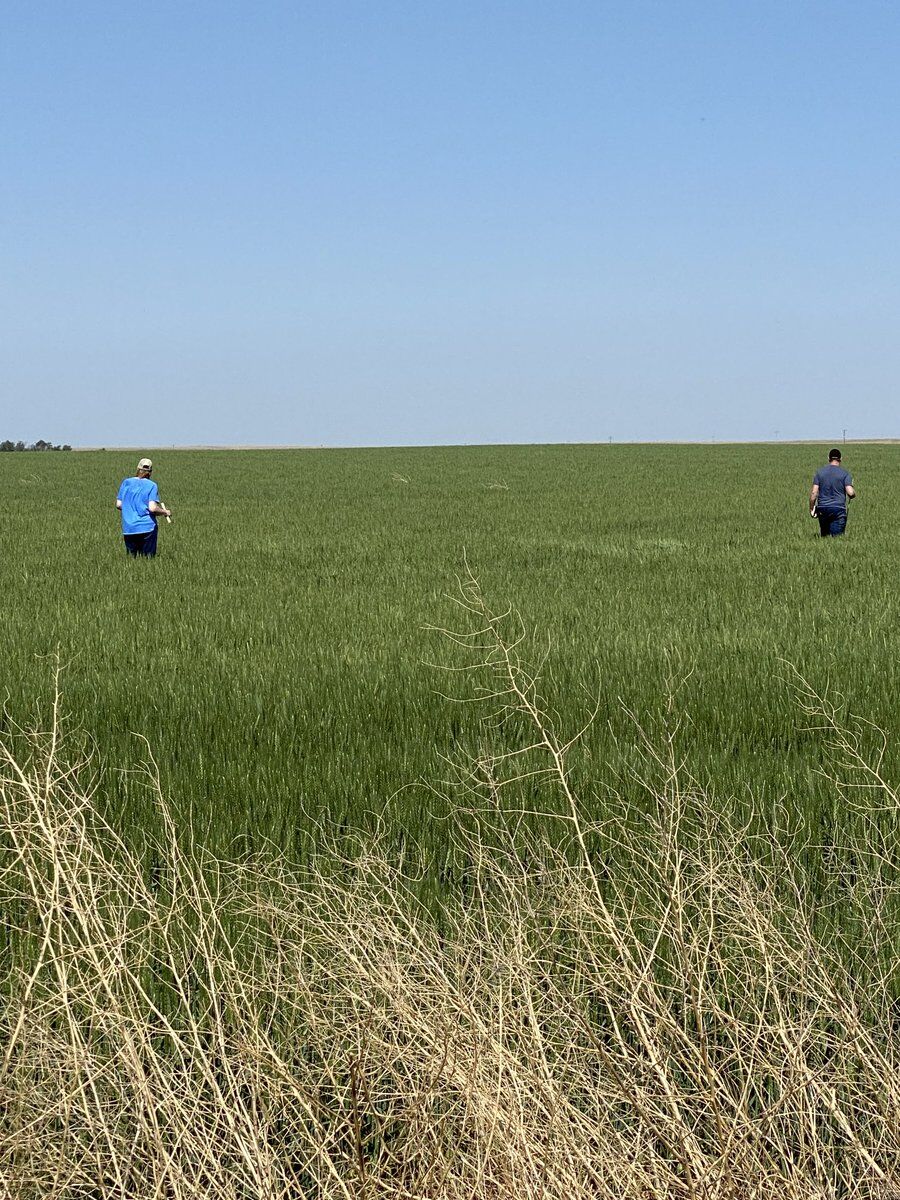Those who might have been hoping for bright spots of top production were likely to be disappointed during the first day of the Kansas Wheat Tour.
Aaron Harries, vice president of research and operations for Kansas Wheat, who was on the north corridor, said those in his caravan projected yields of about 38 bushels per acre, compared to 48 bushels a year ago.
“All of the wheat was short and most was drought stressed,” he said of the U.S. Highway 36 route that was part of the Wheat Quality Council’s 64th annual Hard Winter Wheat Evaluation Tour. The tour, which included six routes, left Manhattan on May 17 and the first day of observations for all the tours ended in Colby that evening.
Recent rains came too late, Harries said, of what his group observed on the northern route. There was some hope the moisture could help but the crop was already too far along and stressed although it will provide much help for the spring planted crops.
“There is no upside right now,” Harries said when it came to the wheat crop that was planted last fall. “It is what it is.”
Crop adjusters are in demand, he said, who have been zeroing out wheat because it is too short.
Producers, he said, have been realistic for some time and they have focused on planting spring crops, which traditionally are corn, soybeans and sorghum.
Protein content in this year’s crop is higher and in past years producers at times could pocket a premium, but the widespread availability of that quality of wheat will limit that opportunity, Harries said.
Despite multiple setbacks producers faced, Harries continues to be impressed with their optimism and management skills. Some producers also did top dressing this spring in hopes of boosting yields, but it was a tough decision for them because of the uphill battle because of the drought stress.
Heading into the tour, Kansas’ what crop was forecast at 271 million bushels, down 93 million bushels from a year ago’s crop, according to the U.S. Department of Agriculture’s National Agricultural Statistics Service May 1 report. About 6.95 million acres were planted in fall 2021 compared to 7 million acres the previous year.
Dave Bergmeier can be reached at 620-227-1822 or [email protected].




